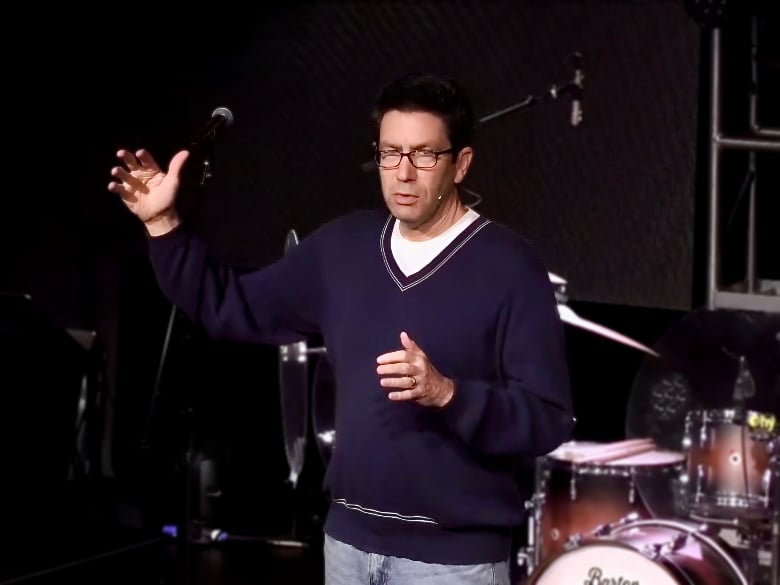
MISSED PART 1?
CLICK HERE TO START FROM THE BEGINNING.
When popular pastor Rev. Selden Dee Kelley suggested that the church should engage in dialogue with the LGBTQ+ community, leaders in his denomination set out to revoke his ministerial credentials and have him fired by placing him on trial.
As the turmoil surrounding his controversial prosecution and its aftermath continues to intensify, both church members and clergy have grown increasingly polarized. Disagreements over LGBTQ+ affirmation, essential doctrine, and limitations of power have transformed into a perfect storm that some say could destroy the Church of the Nazarene.
The Fear
“It’s a culture of fear,” she said. “They are no longer the church I am proud to be part of.” My friend, who spoke under condition of anonymity, is a minister in the Church of the Nazarene who says she has watched the denomination change for the worse just over the past few years. “How many people could lose their credentials? Their livelihoods? Even their homes?”
“This is a nightmare,” she said.

Fears such as these found expression more and more as word spread of Rev. Dee Kelley’s impending trial for allegedly teaching doctrines out of harmony with the church and conduct unbecoming a minister. To make matters worse, the church leaders elected to the highest office in the denomination, collectively called the Board of General Superintendents (BGS), had also recently enacted an unprecedented change in church policy, declaring that certain statements published by the church as well as those “pertaining to what we believe and how we live in light of those beliefs” may be considered essential doctrine.
In the case of Kelley, the charges against him were levied precisely under that technicality. And for many, the timing seems not only suspicious, but coordinated.
Forty-eight hours after the memo announcing that rule change was disseminated, two pastors whom Kelley did not know signed letters that would become the accusations used to prosecute the removal of his ministerial credentials and fire him from his position as Senior Pastor of San Diego First Church of the Nazarene.
“This isn’t about polity or policy. It’s about bigotry and fear,” wrote author and Nazarene pastor JR Forasteros. “If you’re affirming, the denomination has just told us in no uncertain terms that we’re not welcome.”
Randall Hartman, a Nazarene ordained minister (elder) who was subjected to a trial for writing that he loves and accepts all people including the LGBTQ+ community, agrees a culture of fear is emerging in the church. “Am I the only Nazarene minister sensing an emerging culture of fear?” he asked. “Is the denomination swapping love for fear?”
Hartman wrote of his experiences while on trial: “During this process Nazarene pastors sent me private messages expressing their support. Many told me they affirmed the LGBTQ+ community. But they couldn’t go public because of fear.”
“If a church is not a lively body that works, lives, prays, thinks, and confers together, it is the shell of a church,” said Craig Keen, an author, professor, and ordained Deacon in the Church of the Nazarene. “If it becomes frightened people huddled in the dark or aggressive people coercing others by threat and injury, it is no church at all.”
The Zealots
In recent decades, factions within the Church of the Nazarene claiming the denomination is being corrupted by liberal influences have grown in number and boldness. All are motivated by fear, and likewise employ tactics intended to inspire fear.
Concerned Nazarenes is a group that has prolifically opposed established teachings in the Church of the Nazarene, such as its historical stance on biblical inerrancy. They have also lodged fanatical criticisms against institutions of higher education sponsored by the church for reasons as mundane as establishing a prayer room and booking a spiritual retreat at a Catholic monastery.
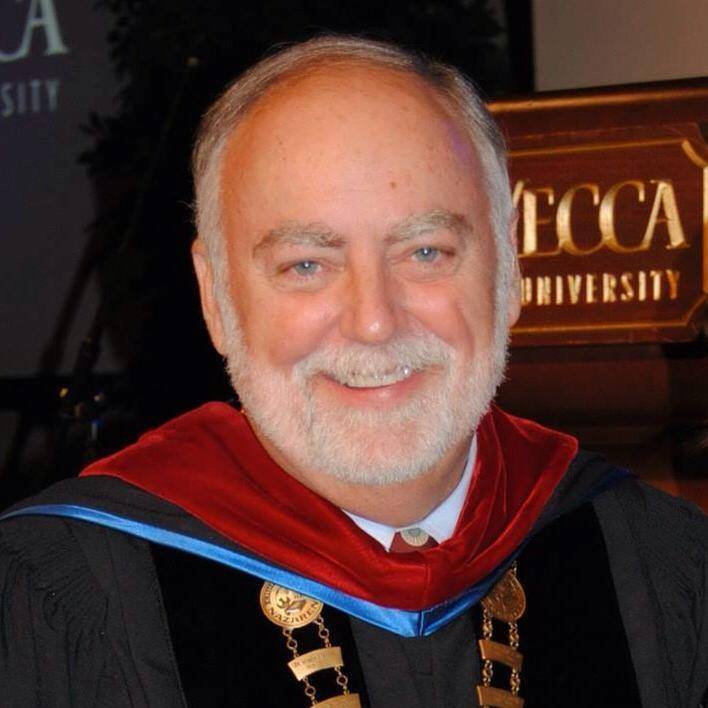
“They were making false claims,” said Dan Boone, president of Trevecca Nazarene University, who initially attempted to engage in dialogue with Concerned Nazarenes and address their specific criticisms against the university. “But you can’t have discussions with people whose minds are already made up…rational conversation with them is not possible.” Boone added, “The cause of Christ suffers because of what they’re doing.”
The core differences between Concerned Nazarenes and the Church of the Nazarene are defined by the group’s insistence upon injecting elements of Reformed theology (otherwise known as Calvinism) into the Wesleyan-Arminian denomination. However, the group, whose membership is primarily comprised of individuals who have already left the denomination, have also vociferously opposed LGBTQ+ affirmation.
The rhetoric chronicled on their website uses pejorative labels such as “apostate,” “heretic,” “unholy,” “diabolical,” and “false teacher,” to denigrate specific individuals within the denomination, including me.
Significantly, Concerned Nazarenes previously criticized Rev. Dee Kelley for speaking briefly during a March 2011 event at his church where another individual publicly announced his own gay sexual orientation. At that event, Kelley remarked, “The church needs to be a safe place where we can engage in difficult conversations on difficult topics and engage our faith in that process.”
While it might appear simple to label Concerned Nazarenes as angry bomb-throwers who become upset when faced with disagreement, the negative attention they drew to Kelley in that situation prompted him to write an open letter explaining the events. These events increased his visibility among those inclined to take radical actions against LGBTQ+ individuals and resist the prospect of affirmation within the church.
One of those who have taken specific actions in attempts to purge the church of others who disagree with their fundamentalist worldview is Jared K. Henry, a Nazarene pastor who also serves as the president of the Holiness Partnership (tHP). Exhibiting more than a few commonalities with Concerned Nazarenes, tHP is an organization that was launched in 2020 at an exclusive invitational conference, co-organized by Henry, that was intended to “return the Church to its original mission”.
But unlike idealistic complaint groups such as Concerned Nazarenes and swampy corners of social media like We Are Nazarene who mostly congratulate themselves for criticizing people they disagree with, tHP promotes itself as a sleek instrument for churches to “re-discover,” “re-emphasize,” and “re-capture” whatever they apparently are missing by offering speakers and resources at a premium price. Beyond the professional logo, flashy website, and $26 t-shirts for sale, the problem with tHP is that they teach a disharmonious doctrine that contends any perspective different than their own is inherently “sinful.” According to tHP, whomever holds contrary opinions are antagonists of the Holy Spirit filled with “inbred sin.”
Not only is this exceptionally poor theology, it’s Pharisaism by definition.

But what is most significant is how the dangerously polarized environment created by Concerned Nazarenes empowered tHP leadership to commit aggressive actions that later would become the exact roadmap used to attack Rev. Dee Kelley.
In October 2021, tHP President Jared K. Henry targeted Thomas Jay Oord, a prominent theologian, author, professor, and ordained minister in the Church of the Nazarene because Henry claimed Oord’s published ideas and proposals refute “the clear teachings of Scripture.” Henry’s number one complaint was that Oord proposes full affirmation of the LGBTQ+ community within the church.
Though Henry did not personally know Oord in any way, he coordinated the efforts of nine other ordained ministers in the Church of the Nazarene to file a written accusation with church leaders in the geographical area Oord resides (called a “district” in the Church of the Nazarene) to initiate a judicial process that could result in a trial.
Henry’s comments on the matter are prosaic and fail to consider the irrevocable damage to the life and ministry such actions could precipitate: “There will always be people like Oord who seek to undermine orthodoxy and orthopraxy within the church,” wrote Henry.
In an open letter to Henry, Oord describes Henry’s reasoning as “disingenuous,” pointing out that Henry supports Reformed/Calvinistic views of scriptural inerrancy. These opinions are contrary to the Church of the Nazarene Manual, an official sourcebook articulating history, rituals, doctrine, governance, and administration for global leaders, pastors, and members of the church. Oord wrote to Henry, “You embrace [these ideas], even though they diverge from the Manual. And yet you want to discipline me and others who want changes in the Manual.”
In Oord’s case, a church leadership committee called a District Advisory Board (DAB) that is responsible for Nazarene churches and pastors within specified geographical areas found that “neither [Henry’s] accusations, nor evidence met the criteria for probable grounds for charges moving forward.” Oord’s proposal to Henry was conciliatory: “My hope is that we have a real conversation without calling for credentials and without seeking discipline…Let’s aim for genuine love (Rom. 12:9).”
Henry for his part has responded by complaining that those “touting their devotion to ‘love’” bully non-affirming pastors “into the corner and beg for us to ‘agree to disagree.’” He concludes, “This is gaslighting to an extreme.”
The Resolution
As Jared K. Henry and others continued to exploit judicial policies originally intended to address doctrinal matters rather than opinions on social issues, the supreme legislative body of the Church of the Nazarene, called the General Assembly, gathered June 9-15, 2023 in Indianapolis, Indiana.
Just days after Rev. Dee Kelley was interviewed by the investigative committee on his district in response to written accusations filed against him for teaching doctrines out of harmony with the church and conduct unbecoming a minister, thousands of elected delegates came together for the first time since 2017 to make decisions that will impact future generations of the church. The collective General Assembly delegation hailed from 162 world areas, and many people braced for conflict because of recent events.
The book Why the Church of the Nazarene Should Be Fully LGBTQ+ Affirming in which Kelley had written the essay “A Hope for Change” that suggests the church should dialogue with the LGBTQ+ community was a hot topic, and copies were spotted everywhere. Some wore t-shirts promoting the book, and tensions were high at the exhibit hall in the vicinity surrounding the Holiness Partnership’s booth.

One of the matters of assembly business was JUD-811a, a resolution that would insert non-doctrinal areas of the Church of the Nazarene Manual into a paragraph of the Judicial Administration section that details policy and procedure for the contested discipline for a member of the clergy. More specifically, the resolution sought to include statements that characterize same-sex intimacy as “contrary to God’s will.”
This resolution would officially legitimize the earlier rule change implemented by the BGS that enabled ethical statements published by the church to be reclassified as essential doctrine. It would also seek to validate the technicality employed in the accusations against Kelley.
JUD-811a was defeated in committee and on the assembly floor. Although this vote lawfully establishes that the church does not consider published statements restricting same-sex intimacy as essential doctrine, by no means was it an end to Kelley’s ordeal.
The Trial
145 days had elapsed since the day Rev. Dee Kelley was first asked to surrender his ministerial credentials by his direct ministry supervisor, Southern California Church of the Nazarene District Superintendent Tom Taylor. The months of demands, threats, accusations, and questionings had been quite long and grueling.
Kelley told me he was surprised not only by the length of time the process took, but also the legalistic judicial undertaking that was thrust upon him, his prosecutors, and the seven male, two female members of the Regional Board of Discipline that would serve as his de facto jury. “The process requires clergy to become familiar with a language and process that is not our native tongue,” said Kelley. “This is all the more incongruent when the issue is related to preaching and teaching, not to fraud, embezzlement or other moral failures.”
Kelley reflected, “The process feels like being David while trying to wear Saul’s armor.”
The morning of August 10, the sky over San Diego was filled with broken clouds. In a conference room at the Holiday Inn on Harbor Drive, the long-awaited trial began.
After the charges were read, a member of the Board of Discipline asked Kelley to respond, and Kelley replied, “Not guilty.”

Kelley’s essay “A Hope for Change” was read in its entirety before Southern California District Secretary Steve Rodeheaver began the prosecution’s opening statement. “Is the church going to stand by its own doctrines and teachings regarding marriage and, you know, sexuality?” asked Rodeheaver. “We brought you here because it really did feel bigger than a Pastor Dee thing…we feel like this is something that impacts the Church of the Nazarene, and this really impacts the global church.”
“I’d like to discuss the essay where it is specifically contrary to the doctrine of the church,” said Rodeheaver. “And argue that, yes, it is doctrine. And I would like to argue, discuss the essay that yes, it is teaching. And it’s not just personal opinion.”
“Our judicial process is modeled after our country’s criminal court system,” Kelley told me. “The Manual requires such things as assertions supported by evidence, that the burden of proof lies with the accuser, and proof beyond a reasonable doubt, yet in none of the hearings did I witness any introduction, instruction, or clarification as to what these standards actually mean.”
The prosecution started its evidence presentation re-reading an excerpt from Kelley’s essay where he wrote he disagreed with a May 2019 ruling by the Board of General Superintendents which stated in part that “Nazarene clergy shall not bless or perform same-sex marriage ceremonies.” Of course, Kelley never said he had or would perform such ceremonies, or even that he sought the authorization to do so; he had merely stated his personal opinion that he disagreed, but the prosecution did not make such a distinction.
Rodeheaver continually referred to the Covenant of Christian Conduct, a section of the Manual that the General Assembly two months earlier had specifically rejected for inclusion in a judicial proceeding. “We’re convinced that the essay teaches against the doctrine of the Church of the Nazarene,” said Rodeheaver.
“I just look at the structure of it. What’s at the center? The argument for endorsing same-sex marriage. And I mean, I’m just reading it,” said Rodeheaver. “That to me looks like the center of the whole thing. And really what the conversation is designed to accomplish.”
The prosecution took an interpretive view of the aims of the essay that was contrary to what Kelley says he intended, and juxtaposed those inferred “teachings” against a section of ethical statements that was not and never had been considered doctrine, claiming anyway that the essay violated the doctrine of the church.
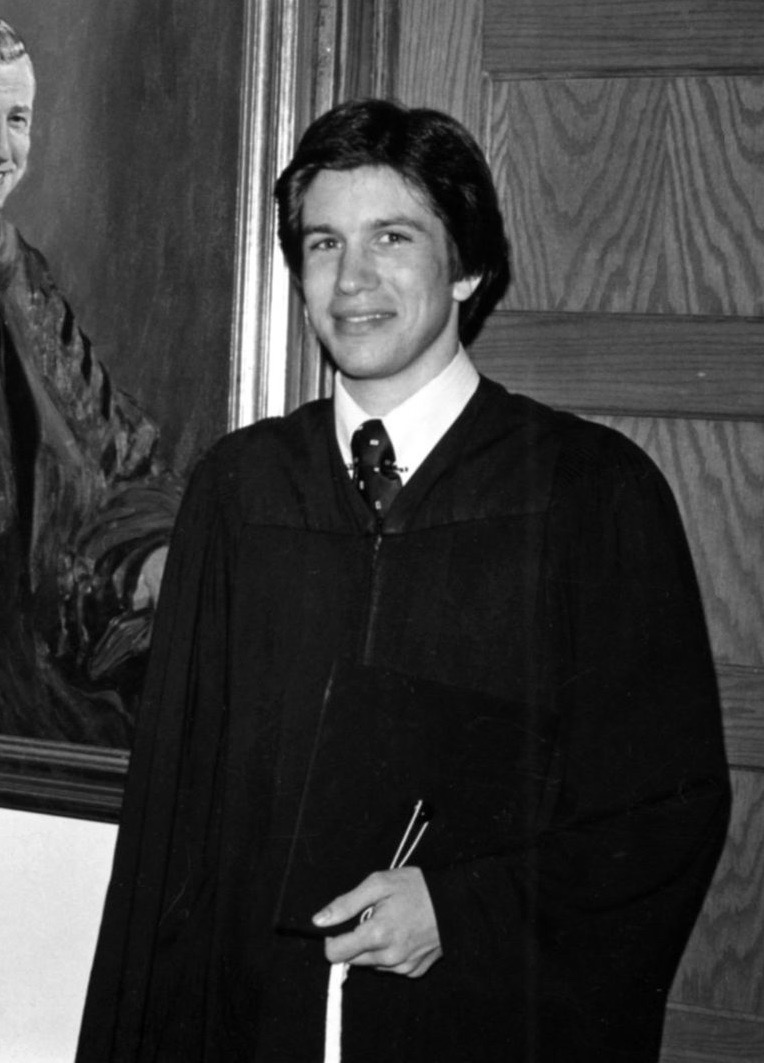
“I’m not trying to find a way to have my charges dismissed based on some technicality,” said Kelley to the Board of Discipline. “Rather, I’m pointing to the processes our church has put in place to protect the witness of the church, the safety of its congregants, and the practice of its clergy.” He continued, “When they are not followed, we run the risks of creating more problems than we solve, and undermining the witness, safety, and practice of those we were trying to protect.”
“Apparently, the two words in my essay, ‘I disagree,’ were enough to preclude any consideration of agreement and move toward the termination of a forty-one year career of serving Nazarene institutions,” said Kelley.
Kelley clarified, “The essay was never intended to teach others but to encourage dialogue between the LGBTQ+ community and the church.”
When Kelley pointed out that resolution JUD-811a had been defeated at General Assembly so there was no legal basis for the charges against him, Rodeheaver objected, and claimed the March 29 ruling of the BGS still stands.
The motion was sustained. In that moment, precedent was set for executive leaders in the Church of the Nazarene to override the legislative representation of its membership.
From that point, Rodeheaver either interrupted to ask questions or objected to every point Kelley offered as evidence, and every objection was sustained. Even when Kelley attempted to present letters to support his character and the impact of his ministry, Rodeheaver objected and asked the board to disregard the letters, which was also sustained.
For his closing argument, Rodeheaver asked and received permission to have District Superintendent Tom Taylor testify, an unusual practice with no correlative in secular courts. Taylor admitted that he did not seek to resolve any issues between he and Kelley beyond their first meeting, which is a violation of Manual requirements that continuous efforts be made to resolve conflicts before judicial measures are initiated.
When Kelley was asked to submit a closing statement, he said, “I’m not running away from the church, I’m trying to run towards it. I’m not running away from people, I’m trying to run toward them.”
“My hope is that you and I don’t get lost in the minutia or lose fellowship as we split hairs,” said Kelley, “but instead I pray that the dialogue leads to inspiring moments that celebrate God’s creation, and humble moments that reveal how much we have to learn from each other…and eternal moments where the love of God washes over all of us and leads us to the sacred ground of grace.”
“Thank you for giving me a chance to meet with you,” Kelley told the Board of Discipline and the accusers who were gathered together to strip him of his ministry and livelihood. “It has been an honor and privilege, and I’m grateful for you.”
Four days later, the Regional Board of Discipline rendered a unanimous verdict against Kelley: guilty on all counts.
The Appeal
I was talking with James Copple, founder of The 1908 Project, an organization that promotes dialogue and conversation around difficult issues within the Church of the Nazarene. “The trial was a complete violation of the procedures outlined in church discipline,” he said. “The whole thing was rigged and designed to purge dissenters.”
“Dee’s case was handled in highly problematic ways from the start,” Thomas Jay Oord told me. “He was not afforded a just process. And after he was found guilty in the first trial, which itself had highly problematic dimensions, those assessing his appeal seemed to believe the end justifies the means.”

Under the advice and guidance of three friends who are attorneys, on September 9, Rev. Dee Kelley submitted his 35-page appeal to the Regional Court of Appeals (RCA). “The Court of Appeals is charged with the task of upholding the integrity of the process,” wrote Kelley. “When they ignored errors, prejudicial actions and lack of due process, the RCA failed.”
Oord said of the RCA, “They seemed to think that it’s more important for the denomination to maintain a public stance on LGBTQ+ issues than to acknowledge how poorly Dee’s case was handled. But sacrificing the fair treatment of Dee for a ‘greater good’ will backfire. Love does not side with unjust processes and misguided majorities.”
The Southern California District Advisory Board, who served as a prosecuting agency, wrote to the RCA, “The real issue is that Rev. Kelley continues to stand by what he wrote, knowing that the Covenants are indeed regarded as Church doctrine. The BGS ruling still stands, the Covenants are doctrine, and Rev. Kelley still stands by his essay. That is very problematic.”
Craig Keen remarked, “It is not news to me that hostile forces get more hostile when they are not met with compliance to their approved ideas and practices.”
After two more months of waiting, on November 10, Kelley was given ten minutes over a Zoom call to present his case to the RCA. Very few were surprised when his appeal was denied ten days later.
“The issues in Dee’s case and the general LGBTQ+ discussion in the Church of the Nazarene are complex. We need to explore them openly,” said Oord. “But to me, they ultimately point to decisions about love.”
The Last Resort
Bruce Barnard, an ordained elder in the Church of the Nazarene who has written academically about how churches respond to LGBTQ+ issues, told me, “The Church of the Nazarene is still wrestling with the question, ‘Can we even talk about the LGBTQ+ issues?’ let alone hold a posture of grace and welcome hospitality.”
Thomas Jay Oord posed the question this way: “Will the denomination love queer people by affirming their identities, orientations, and healthy queer behaviors? Or will the Church of the Nazarene abandon its holy calling to love?”

“There has been nothing in this entire process that even whispers that Dee is loved by the institution,” said Craig Keen. “The final decision of the USA/Canada Regional Court of Appeals was entitled, ‘The Regional Board of Discipline (RBD) versus Selden Dee Kelley III.’” Then Keen asked me, “Would that strike anyone as the heading of a loving ecclesial document?”
“Dee is being publicly flogged by [denominational leaders] for his thoughts. His thoughts!” exclaimed Keen. “What kind of faith would anyone have if the believer were afraid to have thoughts contrary to the ones officially published in a document that changes every four years?”
December 4, Rev. Dee Kelley submitted his final appeal to the General Court of Appeals. He also sent a copy to the Board of General Superintendents, and attached a note. “We have voted you into these positions to represent our beautiful diversity,” wrote Kelley. “I know you don’t always agree with one another, at least I hope you don’t. The people on my district don’t always agree. The people in my church don’t always agree. The members of my own family don’t always agree. But we do the work to remain united in the midst of our diversity.”
“Always speaking with one voice feels like nothing more than a lack of transparency,” Kelley wrote in the letter. “I hope you would consider, when it occurs, giving voice to the one who dissents, so that we might see a healthy and vibrant model of leadership that could be applied to our own areas of service.”
Two days later, District Superintendent Taylor objected in writing to Kelley’s final appeal. Taylor’s letter, which he also sent to the General Secretary and General Counsel of the church, claims Kelley is not a “minister in good standing,” and that “he has forfeited his right to a further appeal.”
The Goodbye
November 26, Rev. Dee Kelley was standing before the congregation he had faithfully served as their pastor for seventeen years. “I look out at this sea of faces. I see the wonderful diversity we have. I love that about this place,” he said. “I know that church has not always been a safe place for all people at all times. I’m sorry about that.”
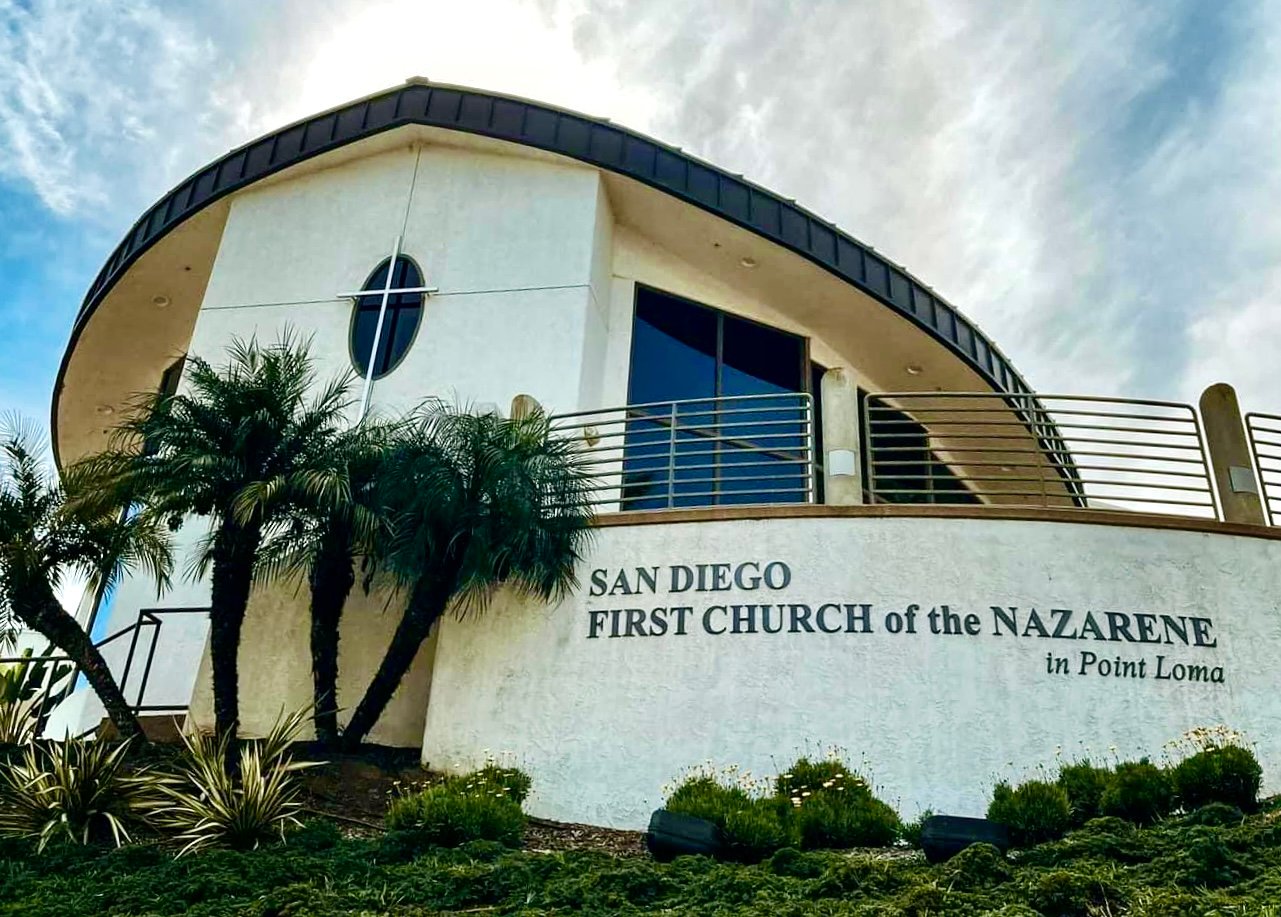
Kelley had been invited to share with the congregation about what happened and to say farewell.
“I certainly have experienced a wide range of emotions over these last nine months,” Kelley told me. “I have great sadness over the direction it feels our denomination is headed. I feel great frustration over how this process has left a local church in a whirlwind of work as they try to hold on to their distinctive characteristics, while at the same time trying to address the consequences of decisions they did not make, but for which they must navigate.”
Members of Kelley’s congregation have reached out to me, some fearing reprisals because of how Kelley was singled out. More than one used the word, “devastated.” Another added, “My prayer is that God will continue to work in our midst.”
Kelley knows the work is not yet done. “I am angry at the inhospitality a group of people experiences when they tune into this debate,” said Kelley. “I am encouraged at the ways people are engaging. I have hope that the Good News will continue to break through, because part of what makes it Good News is that it is Good News for everyone.”
“And I am grateful that this particular judicial process is dwarfed in importance by the many ways that God is at work in transforming our lives,” said Kelley.
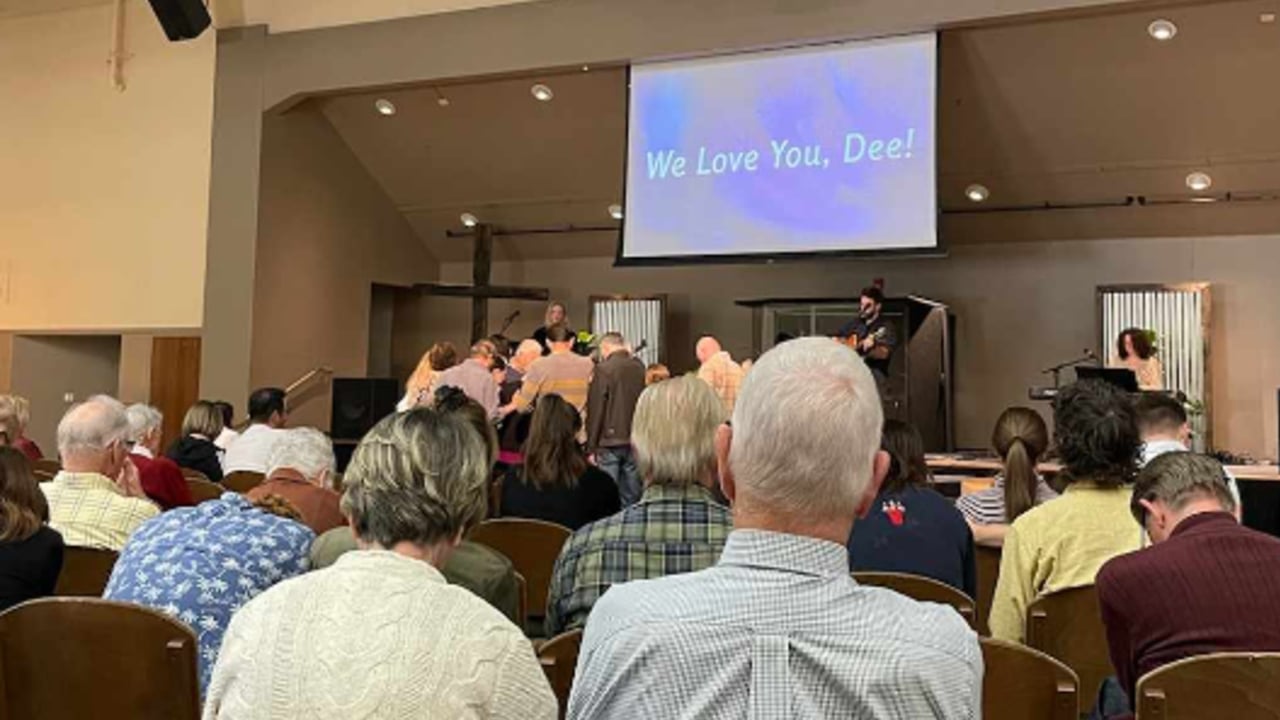
As Kelley said goodbye to the congregation of San Diego First Church of the Nazarene, there were smiles and tears among those gathered. The Spirit present in the room wasn’t one of defeat, but of a love that is patient and kind, always trusting, hoping, and persevering.
A love that never fails.
“God loves you and I love you,” said Kelley as he gazed upon his church family. “That’s the best place we have to start and that’s the place we all have to end. God loves you and I love you.”
The auditorium filled with the sound of applause, and the whole crowd rose from their seats to give their Pastor a loving standing ovation.
* * *
Rev. Dee Kelley submitted his official letter of resignation to San Diego First Church of the Nazarene on November 30.
December 13, Kelley received word from Church of the Nazarene General Counsel Michael Thompson that there is no date scheduled yet for the General Court of Appeals to hear Kelley’s final appeal because schedules must be aligned between individuals from all across the globe for the court to be assembled.
Kelley still awaits his final verdict.

Photo courtesy of Dee Kelley. Used by permission.













